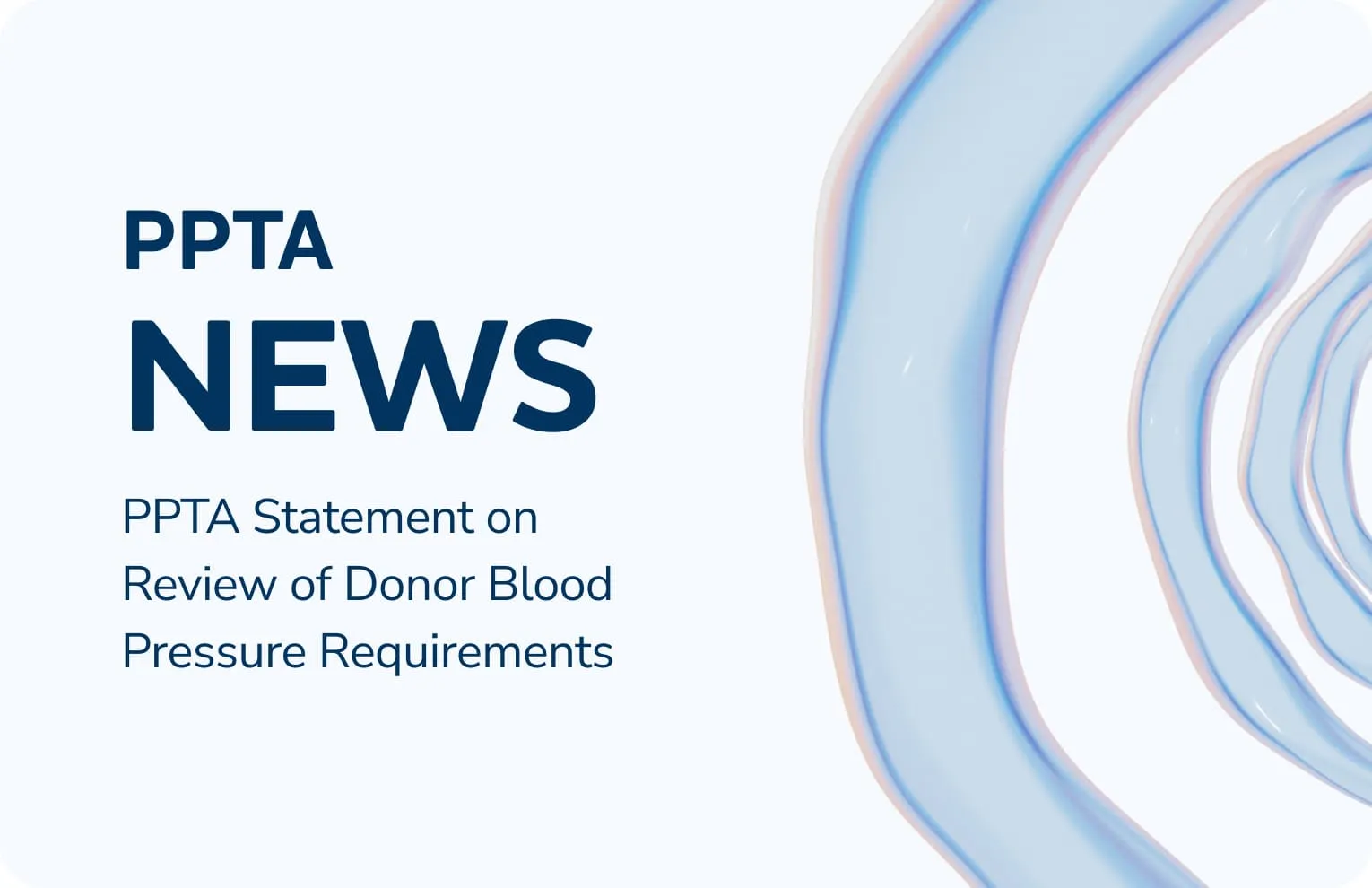September 18, 2025
By Marilena Vrana, PPTA Vice President, Public Affairs & EU Operations
As the world nears International Plasma Awareness Week (IPAW; 6-10 October), we celebrate one of medicine’s most overlooked but most vital resource: plasma. This essential component of blood is the cornerstone of therapies that sustain and transform the lives of hundreds of thousands of patients worldwide.
This year’s IPAW theme, “Plasma Powers Possibility,” reminds us that every donation is more than a gift: it is a lifeline. Plasma is critical for developing therapies that treat a wide range of serious health conditions, from immune deficiencies, bleeding disorders, neurological conditions, and more. It also plays an important role in everyday medical care, including severe burns, surgeries, pregnancy, organ transplants, and many other common occurrences.
As advancements in medicine lead to better diagnosis, broader therapeutic indications, and expanded patient access, the need for plasma-derived medicines continues to grow. With hundreds of thousands of patients worldwide relying on these unique treatments, ensuring a steady supply of plasma donations remains essential.
What makes plasma unique is its complex, irreplaceable nature. Unlike other medicines, plasma-derived medicines cannot be manufactured synthetically – they rely on the generosity of human donors. In between collection and delivery, every donation travels through highly complex, specialised and time-intensive manufacturing process before becoming a treatment.
Plasma cannot be manufactured, nor can it be stockpiled indefinitely. It must be collected today to meet the needs of tomorrow’s patients. In that sense, every donation is both urgent and timeless – it sustains lives in the present and builds possibilities for the future. To treat one person with primary immunodeficiency for a year requires about 130 donations. For chronic inflammatory demyelinating polyneuropathy (CIDP), it is 465 donations; for alpha-1 antitrypsin deficiency, 900; and for haemophilia, more than 1,200 donations are needed annually. These numbers highlight why consistent donation is so important. Hear from one patient on how these lifesaving medicines make a difference:
"Intravenous Immunoglobulin (IVIG) saved my quality of life; it has given me a reason to keep trying." - Dave, living with CIDP
This week is not just about raising awareness — it is about recognising the human chain that makes plasma-derived medicines possible. Donors who give regularly are enabling patients to live fuller lives. Policymakers, clinicians, and patient organisations also play a role in ensuring access and building resilient donation systems. We can all contribute:
- Share stories of patients and donors to inspire others
- Join the conversation on social media by using the hashtags #IPAW2025 and #PlasmaPowersPossibility
- Take local action, whether by hosting awareness events, illuminating landmarks, or encouraging colleagues and friends to donate
IPAW is a reminder of what is possible when science, generosity, and community align. By recognising the importance of plasma and those who give it, we not only celebrate progress in medicine but also reaffirm a shared responsibility: to make sure life-saving therapies remain available for those who need them most.
Plasma powers possibility – not just during IPAW, but every week.
Readers can learn more at www.plasmaweek.org. Marilena Vrana is the VP Public Affairs & EU Operations, Plasma Protein Therapeutics Association.





